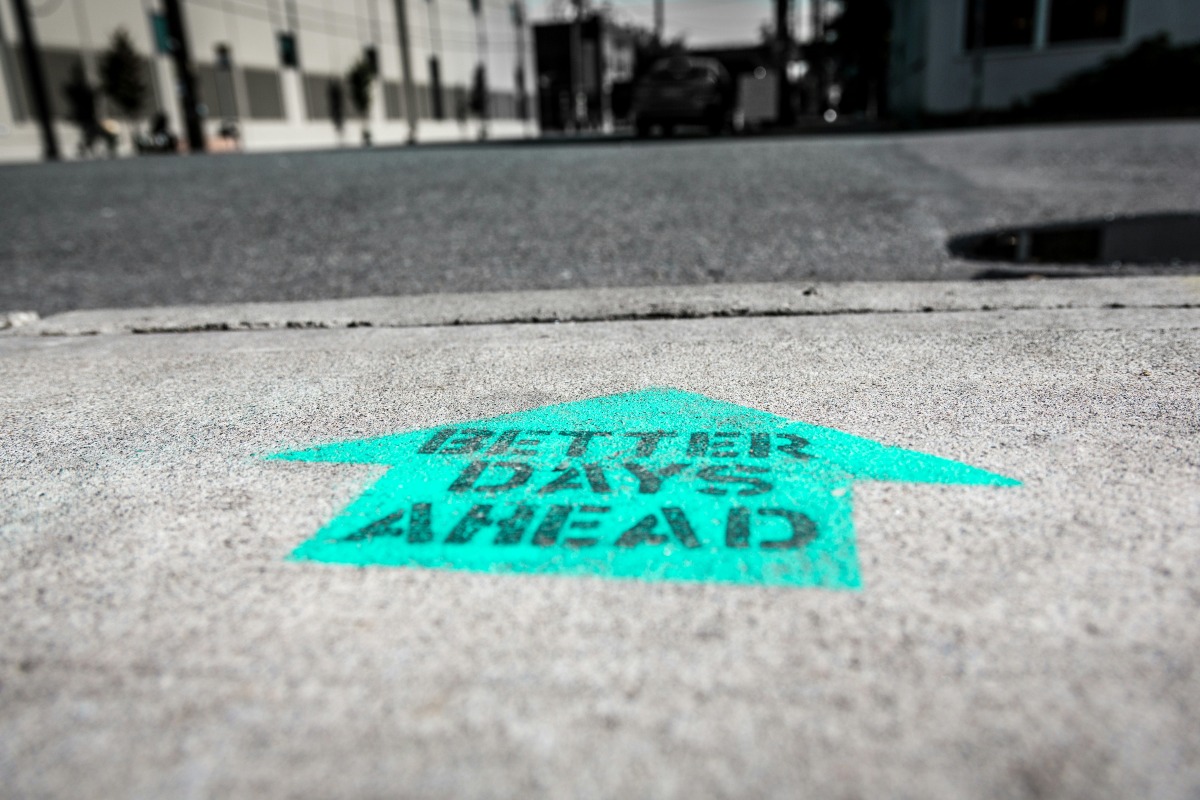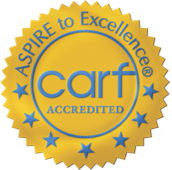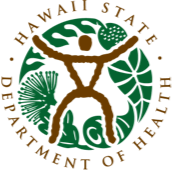Undertaking the challenges and hurdles of a sustainable, healthy, and transformed sobriety takes a lot of hard work. Similarly, not everyone who considers or attends a dedicated addiction treatment program may necessarily be equally as committed to their sober change. For some, uncertainty about the recovery process or their need for it can make it difficult to invest in effective treatment programs.
Meanwhile, others may be resistant to treatment if their program is based on a legal obligation or if they are attending a program to satisfy family members rather than embracing the need for sober change themselves. Motivational interviewing, or MI, is a strategy meant to empower those who may be ambivalent about their recovery to find their motivations to facilitate effective change, and can be a crucial part of committing to a truly transformational recovery journey.
What Is Motivational Interviewing (MI)?
MI is a client-first approach to treatment that seeks not just to understand the impact of addiction on daily life but, more importantly, to explore the personal reasons a person may hold for pursuing sobriety. It is normal to be resistant or suspicious of the recovery process, or of a person’s commitment to it. Recovery is a journey filled with new experiences, vulnerabilities, and change, and it can be wholly transformative, breaking away from established lifestyles to take on new unknowns.
While it can bring amazing change in pursuit of sobriety, it takes hard work and dedication from those looking toward their sober future. Effective use of MI helps find each person’s motivations and goals to commit to their healing and sober future.
MI involves understanding not just the benefits of sobriety but also how it can personally impact each individual’s daily life, life goals, and future, with professionals helping guide conversation to explore new perspectives and personal values rather than focusing on external factors or expectations. Those working with a professional and exploring MI in their journey are often promoted with intentionally open-ended questions that require more than a simple “yes” or “no” answer to truly explore. Distancing oneself from external expectations can also ensure that each person is pursuing sobriety for themselves and their own goals, helping begin the recovery process with impactful motivation.
While MI can be instrumental in pursuing sober goals and committing to an effective treatment program to overcome addiction, it is not necessarily limited to addiction recovery goals. Rather, MI can be effective in exploring a myriad of changes that a person may benefit from, from stopping the use of drugs or alcohol to challenging behavioral addictions like gambling or pursuing personal changes like developing a healthier diet or lifestyle.
What Are the Goals of MI?
The goal of MI is ultimately to empower each person to find their own closely-held reason to commit to treatment and sober change. Addiction recovery takes hard work to establish lasting, sustainable change. Being committed and motivated to personal goals is necessary to make the most of each person’s recovery efforts, prevent relapse, and maintain sober change.
MI also explores potential best practices for an individual in recovery, ensuring that not only is a person committed to their sober change but also ready and willing to explore the therapies and practices that best align with these goals and their motivations. This helps each person personalize their treatment program to reflect their goals for the most effective recovery journey.
MI is not a comprehensive treatment program on its own; rather, it is one element of an otherwise effective approach to healing and treatment for overcoming substance use disorder (SUD) and accompanying challenges like trauma or mental health disorders. Combining MI with a variety of other therapies and using MI to find the practices most impactful for each individual can create something truly personalized.
The key benefits and goals of MI also make it an accessible program to explore. It is an approach that highlights the need for empathy and understanding throughout the recovery process without assumption and empowers those in recovery by acknowledging and exploring legitimate reasons for resistance or doubt in their journey. Addressing resistance to change through understanding and new perspectives can be a powerful approach to change, exploring how current behaviors and lifestyles may be at odds with their own established goals while taking an individualized and sympathetic approach to each individual’s unique personal experiences.
Who Benefits Most From MI?
While MI can be an effective approach to a person’s sober journey, it is not necessarily effective for everyone. Those already committed to their sober change may not necessarily need dedicated MI sessions to explore personal goals. Likewise, those who have realized the dangers of addiction themselves or have experienced these negative effects and embraced the need for change can be committed to their own healing, even if they are still nervous about the practice.
Rather, those who are ambivalent about change, who may not believe they need professional treatment, or who have attempted professional treatment in the past and have been unsuccessful, and may be resistant or doubtful about change themselves, can benefit most from the practice. Likewise, those who live in environments that enable substance use or within cultures that may celebrate substance use can also benefit from MI, helping to contextualize their needs and goals, challenge self-destructive beliefs, and explore personal reasons for pursuing sobriety and change in addiction recovery.
Advantages of MI in Addiction Recovery
It is normal to feel uncomfortable when beginning a person’s journey of overcoming addiction and substance use disorder. However, MI can provide many advantages, especially for those just beginning to explore sobriety and change, and how it can affect their unique healing journey and experiences.
MI takes a safe, calm approach to change. While it is explored under the direction of a trained professional, those exploring healing are encouraged and empowered to make their own decisions and come to personal conclusions, without regard to a “right” or “wrong” answer. This is to focus on personal beliefs, motivations, and perspectives while empowering those in recovery to advocate for their own needs and goals while exploring how professional treatment may be able to support these goals.
MI also helps reduce the need for defensive behaviors or unnecessary resistance, and is an incredibly flexible approach to change, being able to be combined with many other evidence-based strategies and experiential healing options for a comprehensive and holistic approach to sobriety. Those finding a personal reason or motivation for recovery are also more likely to maintain sober change, leading to lasting sobriety and long-term success in overcoming addiction and in personal goals and milestones. Using the lessons and skills learned in MI can continue to benefit those in recovery throughout not just the beginning of their journey, but consistently, even as a sober alumnus.
The Limitations of MI in Addiction Recovery
MI can be amazingly effective for overcoming substance use disorder and exploring personalized healing options. However, it is best used in conjunction with other therapies and techniques, and may not be for everyone. MI is a technique that is best used over time, making gradual changes in daily life while a person explores new ideas, approaches, and motivations. A person may need to engage in MI for multiple sessions before noticing a change in their thinking or motivation for change. Likewise, those in immediate or intense emotional distress may benefit from more direct intervention strategies before transitioning to MI and other therapies over time.
While exploring MI and even positively responding to MI can be an amazing feeling, finding a person’s motivation for change still requires a person to engage in difficult hard work, and is not a replacement for other forms of therapy, professional medical detox programs, or further education about addiction and recovery. Because MI is also intentionally open-ended and personalized, it also does not inherently provide a rigid structure for measuring a person’s progress. Combining MI with a structured daily life or other resources may be necessary to provide a comprehensive approach to effective support, especially early in a person’s recovery journey.
Communication and Structuring Goals and Milestones
Open and honest communication with a trained professional like those at Hawaii Island Recovery is the cornerstone of effective MI. Developing a safe and open space between a person and a professional is necessary to have such an honest and vulnerable conversation about personal experiences and goals. Practicing effective communication strategies first can be essential in promoting the best way of communicating with each person.
New communication strategies and a comfortable environment are used to explore personal motivations and empower those in recovery to take control of their recovery journey. Effective communication can inform effective goal-setting techniques, from grandiose to smaller-scale daily and weekly goals, to continue working toward personal change. Setting these goals oneself, understanding the reasoning behind them, and taking control of each person’s recovery timeline while feeling supported and understood by a trained addiction recovery and mental health professional is a powerful thing in recovery, with each person taking agency in their recovery and daily life.
This approach encourages self-efficacy as a person can build confidence and trust in treatment and their own hard work to make these otherwise difficult changes, and make tangible, profound steps toward lasting recovery. Working with the professionals at Hawaii Island Recovery to explore these personal goals and manage expectations, set important milestones, explore life skills, and develop an effective rewards and accountability system can all continue to facilitate effective change at any stage of a person’s recovery, from their first step into detox to their continued sober success.
Options for Creating a Comprehensive Treatment Program
MI is just one element of an otherwise comprehensive approach to treatment and is a powerful tool for exploring the strategies that may best resonate with a person, their long-term goals, and the most effective therapeutic practices. No two people will experience addiction in exactly the same way, and personalizing each treatment program to reflect the personalized needs, goals, and experiences of each person is crucial for a truly effective and transformational approach to change. Not only will a person need to find their motivations for sobriety, but they will also have to personalize their recovery plan itself with their own best practices, from MI to a variety of other options.
Cognitive-behavioral therapy (CBT), dialectical behavior therapy (DBT), acceptance and commitment therapy (ACT), and other evidence-based therapeutic modalities are all options for effective care. Likewise, these psychotherapy options are often further supported by medical supervision throughout addiction recovery, as well as a myriad of new experiential therapy options.
Hawaii Island Recovery offers extensive options to empower each person to create a comprehensive treatment plan. Experiential therapies like yoga, meditation, nature-based experiential therapies like nature hikes, oceanic healing opportunities like surfing, snorkeling, and swimming with dolphins, and cultural and community outreach programs to get involved with the rich Hawaiian healing culture are all available. Hawaii Island Recovery also champions transformational spiritual healing opportunities, embracing an approach to healing that addresses the mind, body, and spirit in equal measure for holistic change.
Healing at Hawaii Island Recovery
Effective use of MI in addiction recovery is a collaborative effort between a person and a professional, empowering each person to become the agent of change. However, this spirit of community and collaboration is not limited to MI sessions and instead is a core element of Hawaii Island Recovery’s healing philosophy. Community-based healing opportunities, group therapy and activities, and a spirit of togetherness and support make up Hawaii Island Recovery’s atmosphere, embracing the spirit of aloha that permeates not just the facility, but the culture of the Big Island of Hawaii for a unique approach to change and healing.
Creating Long-Term Change
A person’s motivation for change is personal, and each person will have their own goals and reasons for pursuing sobriety. Embracing personal motivations is not something that ends after a dedicated treatment program. Ongoing outpatient support and MI can help each person adjust to new stresses, update goals, and stay committed to their healing. MI is an empowering tool to explore both initial motivations for change and also maintain these motivations long-term in a successful sobriety.
Continuing to talk to professionals, either in dedicated outpatient treatment programs, support groups, or via virtual care options, to update goals may be necessary to continue focusing on these personal goals despite changing stresses, new challenges, or unforeseen triggers in sobriety. Updating these goals and motivations can also help to make adjustments to daily life in sobriety, ensuring that as certain milestones and goals are met, new ones are established, each with a reason to continue maintaining sober change.
The Motivation of a Community
Motivation can come in many different forms. Those exploring MI can also benefit from seeing others navigating their recovery and treatment to understand what their goals may be, and how substance use or addiction may be impacting them. Finding each person’s motivations for change is a personal journey, and combining effective MI with communal efforts alongside peers in group therapy can add even more perspectives on the power of sober change and how it can impact daily life and personal or professional goals.
Peers are a powerful resource for new ideas, motivations, and accountability. Surrounding oneself with peers who understand the challenges of recovery and the strength it takes to embrace vulnerability for the sake of change can empower each person to be more honest and open with professionals and themselves for a new perspective on their sober journey.
Effective recovery is much more than learning to stop the use of drugs or alcohol. Rather, it is a wholly transformational effort, replacing self-destructive behaviors, lifestyles, and mentalities with new perspectives and opportunities in sobriety. Changing daily life, behaviors, spiritual beliefs, and more is all part of genuine change, going beyond addressing the immediate effects of substance use and instead embracing an entirely new life in sobriety.
Motivational interviewing is an effective way of finding the reasons for your unique healing journey. At Hawaii Island Recovery, we embrace the personalized nature of addiction and recovery, and we understand that each person has unique experiences, perspectives, and needs throughout addiction recovery. MI is a way that we can help you explore your needs and goals while providing an array of effective and personalized programs to address these unique needs. Our holistic approach to healing involves emotional support, physical healing, and spiritual healing opportunities, with many different evidence-based and experiential therapies available. For more information on how we can help you take your first step toward a committed sober future, call to speak to us at (866) 390-5070.












